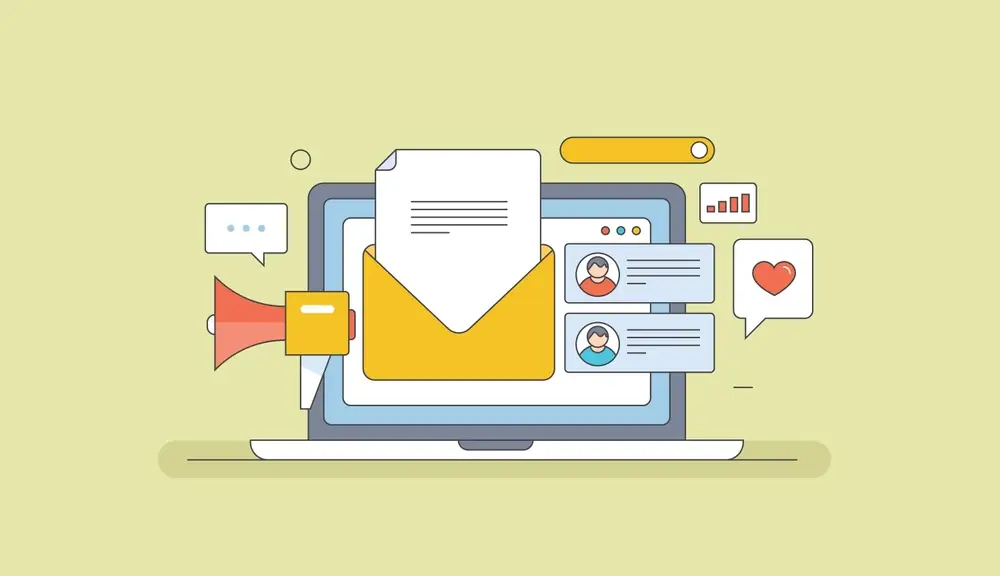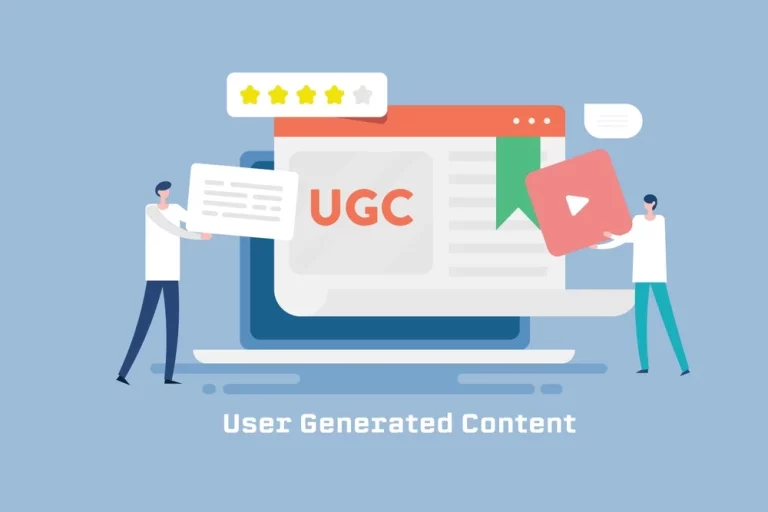The Benefits of Targeted Email Marketing – Turning Leads into Loyal Customers

In today’s fast-paced digital world, businesses have access to a wide range of marketing tools and strategies to reach their audience. Among these, email marketing remains one of the most effective and versatile methods for nurturing leads and converting them into loyal customers. However, not all email marketing is created equal. The key to success lies in targeted email marketing—crafting and delivering personalised messages to specific segments of your audience.
This article explores the benefits of targeted email marketing, detailing how it can help businesses build stronger customer relationships, boost conversions, and drive long-term success.
Understanding Targeted Email Marketing
Before delving into the benefits, it’s essential to understand what targeted email marketing is and how it differs from general email marketing. Traditional email marketing involves sending the same message to your entire email list, regardless of the recipients’ interests, behaviours, or demographics. While this approach can sometimes be effective, it often leads to low engagement rates, unsubscribes, and even spam complaints.
Targeted email marketing, on the other hand, involves segmenting your email list based on specific criteria—such as demographics, purchase history, browsing behaviour, or engagement levels—and sending tailored messages to each segment. This approach ensures that the content of your emails resonates with the recipients, increasing the likelihood of them taking the desired action.
Segmentation: The Foundation of Targeted Email Marketing
The success of targeted email marketing hinges on effective segmentation. Segmentation involves dividing your email list into smaller groups based on shared characteristics or behaviours. Common segmentation criteria include:
- Demographics: Age, gender, location, income, education level, etc.
- Psychographics: Interests, values, lifestyle, personality traits, etc.
- Behavioural Data: Purchase history, browsing behaviour, email engagement, etc.
- Lifecycle Stage: New leads, active customers, lapsed customers, etc.
By understanding the unique needs and preferences of each segment, businesses can create personalised email campaigns that resonate with their audience and encourage them to engage with the brand.
The Benefits of Targeted Email Marketing
Targeted email marketing offers a multitude of benefits for businesses of all sizes and industries. From increasing engagement to driving conversions, here’s how targeted email marketing can transform your lead nurturing efforts.
1. Higher Engagement Rates
One of the most significant benefits of targeted email marketing is the potential for higher engagement rates. When recipients receive emails that are relevant to their interests and needs, they are more likely to open, read, and engage with the content. This leads to higher open rates, click-through rates, and overall engagement.
For example, consider a retail business that segments its email list based on previous purchase history. By sending personalised product recommendations to customers based on their past purchases, the business can capture the recipient’s attention and encourage them to make another purchase.
Moreover, targeted emails reduce the likelihood of your messages being marked as spam or ignored, as recipients are more likely to see value in the content you’re delivering. Over time, this leads to a more engaged and loyal audience.
2. Improved Customer Retention
Retaining existing customers is often more cost-effective than acquiring new ones. Targeted email marketing plays a crucial role in improving customer retention by keeping your brand top of mind and providing ongoing value to your customers.
Through targeted email campaigns, you can offer personalised recommendations, exclusive discounts, or loyalty rewards that encourage repeat purchases and long-term engagement. Additionally, targeted emails can help you re-engage lapsed customers by offering incentives or reminding them of the benefits of your products or services.
For example, a software company might use targeted email marketing to send renewal reminders and offer discounts to customers whose subscriptions are about to expire. By addressing the specific needs and behaviours of each customer segment, businesses can foster loyalty and encourage repeat business.
3. Increased Conversion Rates
Targeted email marketing is a powerful tool for driving conversions. By sending tailored messages that align with the recipient’s stage in the buyer’s journey, businesses can guide leads through the sales funnel and convert them into paying customers.
Consider the different stages of the buyer’s journey:
- Awareness: At this stage, potential customers are becoming aware of a problem or need. Targeted emails can introduce them to your brand and offer educational content that helps them better understand their challenges.
- Consideration: In the consideration stage, leads are evaluating their options. Targeted emails can provide case studies, product comparisons, and testimonials to help them make an informed decision.
- Decision: When a lead is ready to make a purchase, targeted emails can offer special promotions, limited-time discounts, or free trials to incentivise the purchase.
By delivering the right message at the right time, targeted email marketing increases the likelihood of converting leads into customers.
4. Personalisation at Scale
Personalisation is one of the most effective ways to engage with your audience, but doing so at scale can be challenging. Targeted email marketing allows businesses to achieve personalisation on a large scale by leveraging data and automation.
With modern email marketing platforms, businesses can automatically personalise emails based on a variety of data points, such as the recipient’s name, location, purchase history, and browsing behaviour. This level of personalisation helps create a more intimate and relevant experience for the recipient, increasing the chances of engagement and conversion.
For example, an e-commerce business might use targeted email marketing to send personalised product recommendations based on a customer’s past purchases. The email might include the customer’s name, along with images and descriptions of products that align with their preferences. This level of personalisation makes the recipient feel valued and understood, fostering a stronger connection with the brand.
5. Cost-Effective Marketing
Compared to other marketing channels, targeted email marketing is highly cost-effective. The costs associated with email marketing are relatively low, and the return on investment (ROI) is consistently high. According to the Data & Marketing Association, email marketing delivers an average ROI of $42 for every $1 spent.
By focusing on specific segments of your audience, you can allocate your marketing resources more efficiently and avoid wasting money on broad, untargeted campaigns. Targeted email marketing also allows you to test and optimise your campaigns to maximise their effectiveness, further increasing your ROI.
For small businesses or those with limited marketing budgets, targeted email marketing offers a powerful and affordable way to reach and engage with potential customers.
6. Enhanced Customer Experience
Customer experience is a key differentiator in today’s competitive marketplace. Targeted email marketing allows businesses to enhance the customer experience by delivering relevant, timely, and valuable content that meets the needs of each individual.
For instance, a travel agency might use targeted email marketing to send personalised travel recommendations based on a customer’s previous trips or preferences. By providing relevant and useful information, the agency can enhance the customer’s experience and build a stronger relationship with them.
Additionally, targeted email marketing can help businesses anticipate and address customer needs before they even arise. For example, an online retailer might send a follow-up email to a customer who recently purchased a product, offering related accessories or complementary items. This proactive approach not only improves the customer experience but also increases the likelihood of additional sales.
7. Greater Insight into Customer Behaviour
One of the key advantages of targeted email marketing is the ability to gain deeper insights into customer behaviour. By analysing the performance of your email campaigns, you can learn more about what your audience responds to, what drives conversions, and what areas need improvement.
For example, by tracking open rates, click-through rates, and conversion rates for different segments, you can identify which types of content resonate most with your audience. You can also use A/B testing to experiment with different subject lines, email designs, and calls to action, allowing you to optimise your campaigns for better results.
These insights not only help you refine your email marketing strategy but also provide valuable data that can inform other areas of your marketing efforts. By understanding your customers’ preferences and behaviours, you can create more effective marketing campaigns across all channels.
8. Strengthened Brand Loyalty
Brand loyalty is built on trust, consistency, and a positive customer experience. Targeted email marketing helps strengthen brand loyalty by delivering consistent, relevant, and personalised content that resonates with your audience.
By regularly communicating with your customers through targeted emails, you can keep your brand top of mind and reinforce your value proposition. Whether it’s through educational content, exclusive offers, or personalised recommendations, targeted email marketing allows you to build and maintain a strong connection with your customers.
Moreover, targeted emails can be used to reward loyal customers and show appreciation for their continued business. For example, you might send a special discount or a personalised thank-you note to customers who have made multiple purchases. These small gestures can go a long way in building and maintaining customer loyalty.
9. Flexibility and Scalability
Targeted email marketing is highly flexible and scalable, making it suitable for businesses of all sizes and industries. Whether you’re a small startup or a large enterprise, you can tailor your email marketing efforts to meet your specific goals and resources.
For example, a small business with a limited budget can start with a simple targeted email campaign focused on a specific segment of their audience. As the business grows and its email list expands, it can scale up its efforts by adding more segments, testing different strategies, and leveraging automation tools.
This flexibility allows businesses to adapt their email marketing strategy as they grow and evolve, ensuring that they continue to reach and engage with their audience effectively.
10. Measurable Results
One of the most significant advantages of targeted email marketing is the ability to measure and track results in real-time. Email marketing platforms provide detailed analytics and reporting tools that allow businesses to monitor the performance of their campaigns and make data-driven decisions.
Key metrics to track include:
- Open Rate: The percentage of recipients who opened your email.
- **Click-Through Rate (
CTR):** The percentage of recipients who clicked on a link within your email.
- Conversion Rate: The percentage of recipients who took the desired action (e.g., making a purchase, signing up for a webinar).
- Bounce Rate: The percentage of emails that were not delivered successfully.
- Unsubscribe Rate: The percentage of recipients who opted out of your email list.
By analysing these metrics, businesses can gain valuable insights into what’s working and what’s not, allowing them to optimise their campaigns for better results.
Conclusion
In an increasingly competitive digital landscape, targeted email marketing stands out as a powerful and cost-effective strategy for turning leads into loyal customers. By segmenting your audience and delivering personalised, relevant content, you can boost engagement, drive conversions, and build lasting relationships with your customers.
The benefits of targeted email marketing extend far beyond the immediate impact of a single campaign. Over time, this approach helps businesses enhance customer experience, gain valuable insights, and strengthen brand loyalty—all of which are essential for long-term success.
Whether you’re a small business looking to grow your customer base or a large enterprise seeking to refine your marketing efforts, targeted email marketing offers a proven path to achieving your goals. By investing in targeted email campaigns, you can unlock the full potential of your email list and turn leads into loyal, repeat customers.
Contact Us
You can contact us on Whatsapp:
or fill up the contact form





